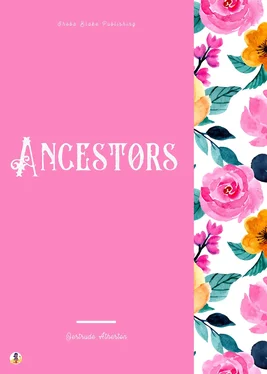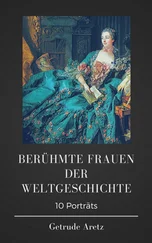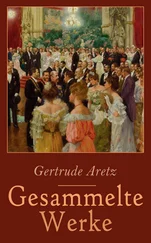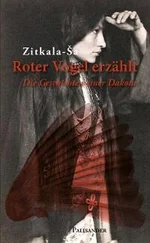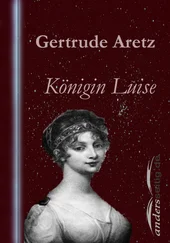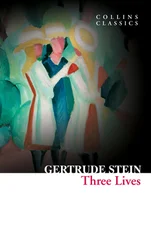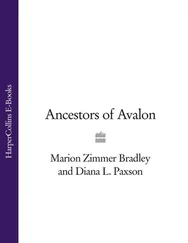Gertrude Atherton - Ancestors
Здесь есть возможность читать онлайн «Gertrude Atherton - Ancestors» — ознакомительный отрывок электронной книги совершенно бесплатно, а после прочтения отрывка купить полную версию. В некоторых случаях можно слушать аудио, скачать через торрент в формате fb2 и присутствует краткое содержание. Жанр: unrecognised, на английском языке. Описание произведения, (предисловие) а так же отзывы посетителей доступны на портале библиотеки ЛибКат.
- Название:Ancestors
- Автор:
- Жанр:
- Год:неизвестен
- ISBN:нет данных
- Рейтинг книги:3 / 5. Голосов: 1
-
Избранное:Добавить в избранное
- Отзывы:
-
Ваша оценка:
- 60
- 1
- 2
- 3
- 4
- 5
Ancestors: краткое содержание, описание и аннотация
Предлагаем к чтению аннотацию, описание, краткое содержание или предисловие (зависит от того, что написал сам автор книги «Ancestors»). Если вы не нашли необходимую информацию о книге — напишите в комментариях, мы постараемся отыскать её.
Ancestors — читать онлайн ознакомительный отрывок
Ниже представлен текст книги, разбитый по страницам. Система сохранения места последней прочитанной страницы, позволяет с удобством читать онлайн бесплатно книгу «Ancestors», без необходимости каждый раз заново искать на чём Вы остановились. Поставьте закладку, и сможете в любой момент перейти на страницу, на которой закончили чтение.
Интервал:
Закладка:
“Proud?”
“Yes, he was rather a snob. He was very clever, but he fell out of things, and being able to dwell on his English and Spanish connections meant a good deal to him. I can recite the family history backwards.”
“But if he was clever, why on earth did he live in Rosewater? Surely he could have practised in San Francisco?”
“He drank. When a man drinks he doesn’t care much where he lives. My father had fads but no ambition.”
“Great heaven!” exclaimed Miss Thangue, aghast at this toneless frankness. “You must have been glad to be rid of him!”
“I was fond of him, but his death was a great relief. He was a hard steady secret drinker. I nursed him through several attacks of delirium tremens, and was always in fear that he would get out and disgrace us. Sometimes he did, although when I saw the worst coming I generally managed to get him over to the ranch. Of course it tied me down. I rarely even visited my sister. My father hated San Francisco. He had practised there in his youth, promised great things, had plenty of money. The time came—” She shrugged her shoulders, although without the slightest change of expression. “I never lived my own life until he died, but I have lived it ever since.”
“And the first thing you did with your liberty was to come to Europe,” said Miss Thangue, with a sympathetic smile.
“Of course. My father and uncle had got rid of most of their property long before they died; there isn’t an acre left of our share in the southern estate. But my uncle died six years ago and willed me all that remained of the northern, as well as some land in the poorer quarter of San Francisco. I could not touch the principal during the lifetime of my father, but we lived on the ranch and I managed it and was entitled, by the terms of the will, to what I could make it yield. When I was finally mistress of my fortunes I left it in charge of an old servant, sold enough to pay off the mortgage on a property in San Francisco I inherited from my mother, and came to Europe with a personally conducted tour.”
Miss Thangue shuddered. The phrase unrolled a vista of commonness and attrition. Miss Otis continued, calmly: “That is the way I should feel now. But it was my only chance then; or rather I had seen enough of business to avoid making mistakes when I could. In that way I learned the ropes. After we had been rushed about for six weeks and I could not have told you whether the Pitti Palace was in Italy or France, and the celebrated frescos were one vast pink smudge, the party returned and I wandered on by myself. I spent a winter in Paris, and months in Brittany, Austria, Italy, Spain—Munich.” It was here that her even tones left their register for a second. “I studied the languages, the literatures, the peoples, music, pictures. In Munich”—this time Flora’s alert ear detected no vibration—“and also in Rome, I saw something of society. It was a life full of freedom, and I shall never cease to be grateful for it, but I must go home soon and look after my affairs. I left England to the last, like the best things of the banquet. I hope Lady Victoria—I shall never be able to call her Cousin Victoria, as I remember father did—will be nice to me. I have seen a good deal of life, but have never had a real girl’s time, and I should love it. Besides, I have a lot of new frocks.”
“I am sure Vicky will be nice to you. If she isn’t, I’ll find some one that will be. You might marry Jack if you had money enough. We are dying to get him married—and a California cousin—it would be too romantic. And you would hold your own anywhere!”
But Miss Otis expanded a fine nostril. “I have no desire to marry. I feel as if I had had enough of men to last until I am forty—what with those I have buried, and others I have known at home and in Europe—to say nothing of the executors of my uncle’s will, who did not approve of my coming abroad alone and delayed the settlement of the estate as long as possible. And now I have had too much liberty! Besides, I have seen ‘Jack’s’ picture—two years ago, in a magazine. I will confess I had some romantic notions about him: imagined him very dashing, bold, handsome; insolent, if you like—the traditional young aristocrat, glorified by genius. He looks like Uncle Hiram.”
“Is that who Jack looks like? We never could make out. No, Jack is not much to look at, except when he wakes up—I have seen him quite transfigured on the platform. But he is as insolent as you could wish, and has a superb confidence in himself that his enemies call by the most offensive names. But he is a dear, in spite of all, and I quite adore him.”
“Perhaps; but life, myself, so many mysteries and problems, upon which I have barely turned a dark lantern as yet, interest me far more than any man could, unless he were superlative. I have had my disillusions.”
She lit another cigarette, and for a few moments looked silently out of the window at the darkening woods beyond the lawn. Flora Thangue regarded her with a swelling interest. It was a type of which she had no knowledge, evidently not a common type even in the hypothetical land of the free; she had visited New York and Newport and known many Americans. True, she had never met the provincial type before, but she doubted if Rosewater had produced a crop of Isabel Otises. What was at the source of that cold-blooded frankness, so different from the English fashion of alternately speaking out and knowing nothing? Was she merely an egoist—it ran in the family—or did it conceal much that she had no intention of revealing? Her very beauty was of a type rarely seen in the America of to-day, prevalent as it may have been a hundred years ago: she looked like a feminine edition of the first group of American statesmen—although black Spanish hair was pulled carelessly over the high forehead, a heavy coil encircling the head in a long upward sweep, and the half-dreaming, half-penetrating regard of the light-blue eyes was softened by a heavy growth of lash. The eyebrows were low and thick, the upper lip was sensitive, quivering sometimes as she talked, but the lower was firm and full. It was the brow, the profile, the strength of character expressed, the general seriousness of the fine face and head, that made her look like a reversion to the type that gave birth to a nation. But Miss Thangue had seen too much of the world to judge any one by his inherited shell. She had observed many Americans with fine heads and bulging brows concealing practically nothing, insignificant German heads whose intellects had terrified her, the romantic Spanish eyes of the most unromantic people in Europe, English pride and an icy mask of breeding guarding from the casual eye the most lawless and ribald instincts. Therefore had she no intention of taking this new specimen on trust, much as she liked her, and she speculated upon her possibilities in the friendly silence that had fallen between them. Life is composed of individuals and their choruses, and Flora, humorously admitting the fact, was far more interested in others than in herself.
Only in the dense silky masses of her black hair and the almost stolid absence of gesture did the American betray her Spanish ancestry; but how much of the Spaniard, subtle, patient, vengeful, treacherous, mighty in passive resistance and cunning, lay behind those deep fearless blue eyes of her New England ancestors? Or was she not Spanish at all, but merely a higher type of American—or wholly herself? Would Jack, susceptible and passionate, a worshipper of beauty down among the roots of his abnormal cleverness and egoism, fall in love with her? And what then? The girl, with her strong stern profile against the shadows, her low brooding brows, might wield a power far more dangerous than that of the average fascinating woman, if her will marshalled the rest of her faculties and drove them in a straight line; although the luminous skin as polished as ivory, the low full curves and slow graceful movements of her figure added a potency that Flora, always an amused observer of men, would have been the last to ignore. Victoria, high-bred, fastidious, mocking, yet unmistakably passionate and possibly insurgent, was of that mint of woman about whom men had gone mad since the world began. But this girl, who might be as cold as the moon, or not, looked, in any case, capable of clasping a man’s throat with her strong little hand, and gently turning his head from east to west. At this point Miss Thangue rose impatiently and rang a bell. Jack’s career was almost at the flood. No woman could submerge his intellect and stupendous interests for more than a moment.
Читать дальшеИнтервал:
Закладка:
Похожие книги на «Ancestors»
Представляем Вашему вниманию похожие книги на «Ancestors» списком для выбора. Мы отобрали схожую по названию и смыслу литературу в надежде предоставить читателям больше вариантов отыскать новые, интересные, ещё непрочитанные произведения.
Обсуждение, отзывы о книге «Ancestors» и просто собственные мнения читателей. Оставьте ваши комментарии, напишите, что Вы думаете о произведении, его смысле или главных героях. Укажите что конкретно понравилось, а что нет, и почему Вы так считаете.
